I'm using MC34063 in step-up configuration to charge 4S lithium-ion battery pack. Input is 12 V output is set to 16.9 V. Module consists of a 0.33 Ω current sensing resistor, a shielded 2 A 100 uH inductor, SS34 Schottky diode and 100 uF 1206 SMD ceramic capacitor. While battery is charging there is no noise but as soon as batteries are full and charge controller disconnects the charger from battery pack MC34063 module starts emission of an annoying noise. I cannot find which component is the source. The inductor, Schottky diode, capacitor or the IC itself? Can you help me please find a solution for this annoying issue?


Asked
Active
Viewed 92 times
1
Math Keeps Me Busy
- 18,947
- 3
- 19
- 65
AKTanara
- 261
- 1
- 8
-
Is there a particular reason you are using MC34063 in 2023? It lacks any skip mode at low or no load so it will tend to oscillate around any minimum duty cycle. Any modern boost converter would not have this issue. – winny May 25 '23 at 11:07
-
4Source of the noise is most probably in the inductor and ceramic capacitors due to Lorentz forces inside them. – winny May 25 '23 at 11:14
-
Thanks @winny, I'm open to suggestions... What is the commonly used alternative which hopefully has the circuit as simple as MC34063? – AKTanara May 25 '23 at 11:15
-
There are many alternatives. Try TI webench and punch in your requirements. With any synchronous boost converter, the parts count should be even lower than what you have today. Unless this is mass production, AD LTM4656 springs to mind too as it's only one component. – winny May 25 '23 at 11:22
-
@winny, I followed your instructions and unfortunately none of the alternatives were readily available for me to buy! I tried different value inductors and electrolyte capacitor without any difference in noise pitch and level. I wish I had an alternative diode to replace and make sure it is not source of the noise. – AKTanara May 25 '23 at 16:31
-
1Out of stock, all of them at all distributors? The pitch would be due to how MC34063 handles low duty cycle. Changing to components with less “microphony” would just attenuate it. Nail polish/conformal coating/hot melt glue is also good for attenuating the sound. – winny May 25 '23 at 18:24
-
@winny Thanks. Not out of stock, but never there! in my country. I found the same question that has been asked in 2020 in which you also participated. Someone has answered that high value inductor (100uH) that cause this noise, are generally unnecessary for this circuit and suggested lower (20-33 uH) inductors. I gave it a try and result was a little bit more ripple in output (250mV) but noise emission from caps and inductor reduced significantly. Has lower value inductor other effects than higher ripple? like exertion of more load on MC34063 chip? I'll try epoxy cover and report results. – AKTanara May 26 '23 at 08:06
-
Digikey, Mouser, RS and Farnell ships all over the world. Order the parts you need for the job. Simulate your circuit with the values you proposed. How did the ripple change? – winny May 26 '23 at 08:56
-
1You might try this: remove the battery and replace it with a load resistor to see how little load you can get away with to keep the noise from occurring. If the load is not too high, you can leave it there so the converter will see a load after the battery is charged. You probably want to add a diode between the load and the battery to keep the battery from discharging through the load resistor the charger is unplugged, and keep your feedback point at the battery. This will hurt the efficiency, but at least you won't have the noise. – John Birckhead May 26 '23 at 12:45
-
@JohnBirckhead Thanks, I'll try and report the results soon. – AKTanara May 26 '23 at 16:19
1 Answers
0
I've tried to calculate the conditions with the values in your schematic and the online calculator: http://www.nomad.ee/micros/mc34063a/
I adjusted the frequency until the calculated capacitance showed as 680pF.
 When charging, the frequency would be little above 19kHz. The MC34063 does not PWM but will miss pulses when the output voltage is reached. 19kHz is too close to what you can hear.
When charging, the frequency would be little above 19kHz. The MC34063 does not PWM but will miss pulses when the output voltage is reached. 19kHz is too close to what you can hear.
hennep
- 191
- 6